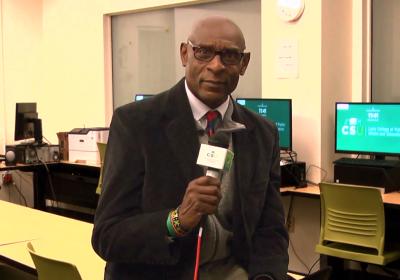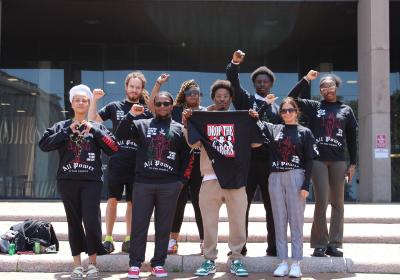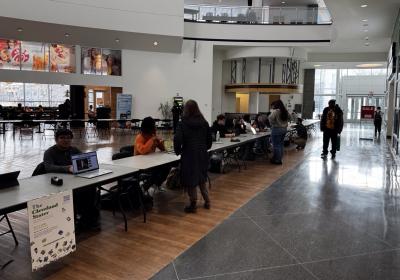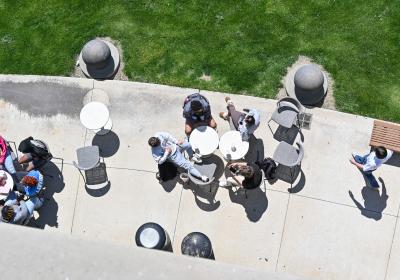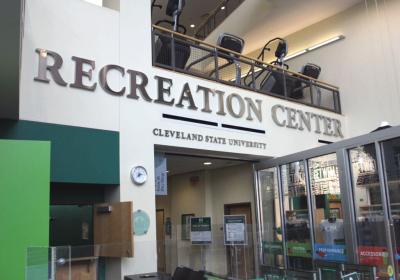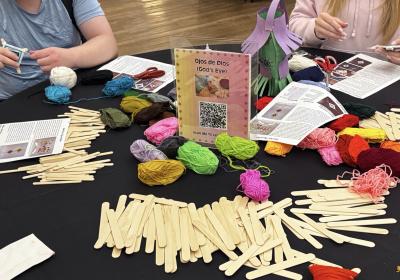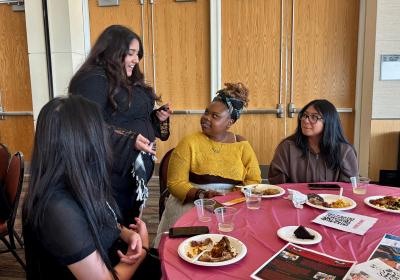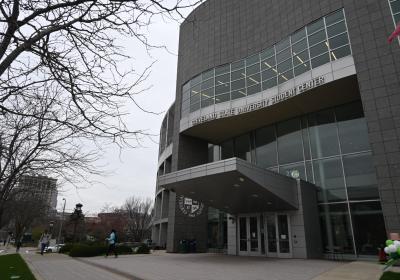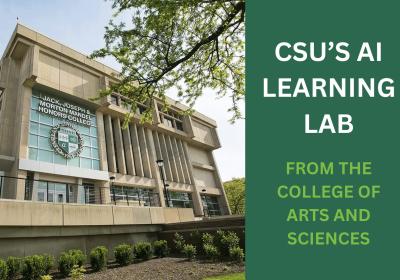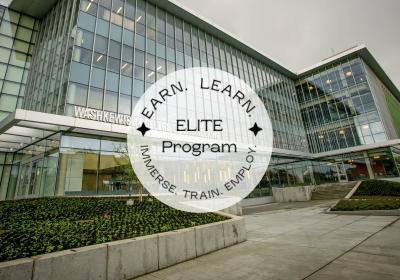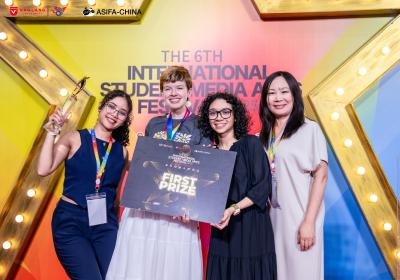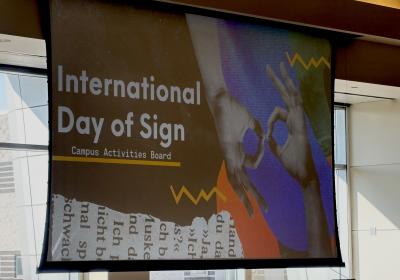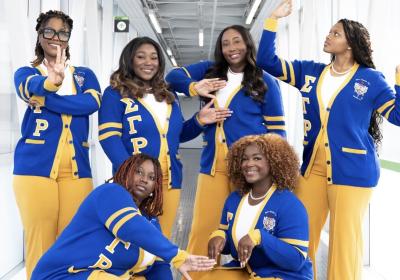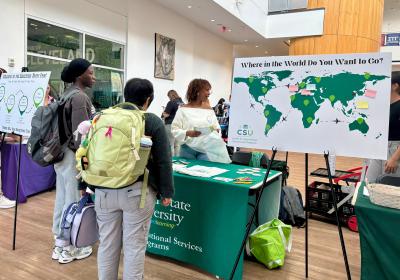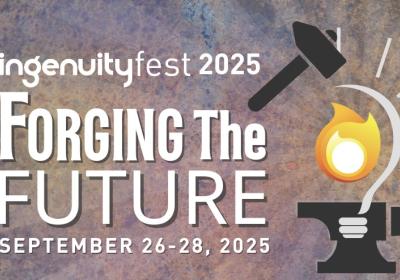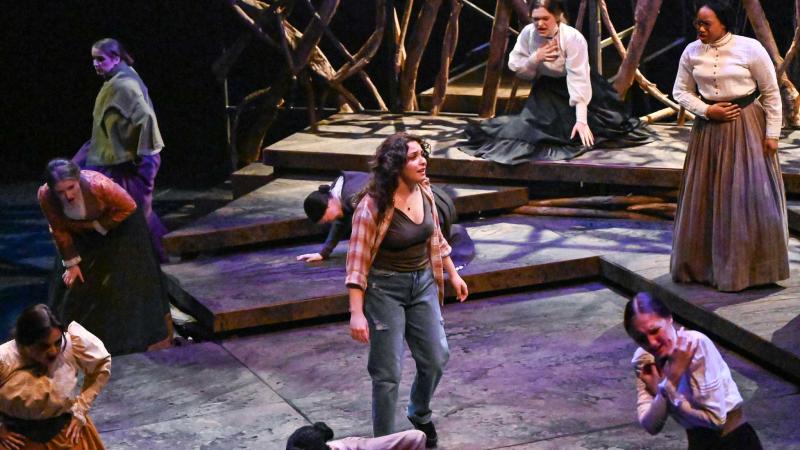
What you need to know about “Ancestra”
“Ancestra,” directed by Holly Holsinger and written by Holly Holsinger and Chris Seibert, is a play that explores issues associated with women's rights. It opens on Thursday, Feb. 22, and will play at the Outcalt Theater, Playhouse Square, Cleveland, through Sunday, March 3.
As Cleveland State University enters into its twelfth season as a resident company of Playhouse Square, the first show for the spring 2024 semester will demonstrate the importance of women’s rights with “Ancestra”— an original production created by the CSU Theatre and Dance Department chair Associate Professor Holly Holsinger and writer, actor and performer Chris Seibert.
The play is inspired by the 1853 National Women’s Rights Convention. While exploring the pioneers of women’s rights, the play follows the story of a journalism student, Cora, who writes about reproductive healthcare.
As Cora’s methods of investigation take an unconventional turn, she is swept through the crisis of the past and the present, revealing the long history of silencing women and the violence and intimidation they continue to experience.
Where it all began
Holsinger explains that “Ancestra” began as an ancestral project, eventually becoming a student performance. The process of turning it into a performance took several years. In 2014, it was performed for the first time, at the Gordon Square Theater in Cleveland.
Since then, the play has evolved with new information, historical characters, and recent changes. For example, in the original script, Cora was a working journalist rather than the student she is now.
In 2022, when the Supreme Court overturned Roe V. Wade and the constitutional right to abortion, the creators of “Ancestra” felt the blow of the heavy hand of a systemically patriarchal society. It inspired them to rework the story to coincide with the current state of women’s rights.
“There has never been a more urgent time than NOW for our voices to be heard,” Holsinger said.
Following the blow the Supreme Court struck against women's rights in the U.S., the latest iteration of "Ancestra" was first performed at Pace University in 2022.
The play is more relevant than ever in 2024, almost two years after Roe v. Wade was overturned. And it’s incredibly relevant in Cleveland, considering that the Woman's Rights Convention of 1853 was held in Cleveland, and, for the first time, called for the abolition of slavery, adding the convention's voice to the demands for an end to race-based oppression.
Making “Ancestra”
Director and playwright Holly Holsinger recently spoke to The Cleveland Stater about her hopes for the play, the power the story holds, and what someone might take away after experiencing the performance.
“I really wanted the audience to feel the presence and the vibration, feel the vibration of the women in this play,” Holsinger said. She noted that the play contains no recorded music or sound effects. Every sound is live and the music is original, produced for the current play.
The idea of “Ancestra” grew from the shared stories of pioneer women who fought for women’s rights.
“That's where the idea grew from,” Holsinger said, "voices from the past and the present voices, kind of speaking to each other and converging at some point.”
The play is a contribution to the ongoing history of the struggle for women's rights in the U.S., and Holsinger wants people to know that “it's actually a great story. It's not preachy.”
Her aim was to draw in the audience as they experience the lives and struggles of the characters. Cora, who is driven, but complicated and flawed, will leave many women finding they can relate to her.
Holsinger wants the audience to leave with “a mantle of empowerment.” She is hoping it influences people to be more open to talking about women’s rights.
The show times are Thursday through Saturday at 7:30 p.m., and Sundays at 2 p.m. Tickets range from $5 to $20 and are available at the Playhouse Square website or the State Theatre Ticket Office, at 1519 Euclid. Ave. Cleveland. CSU students can use code CSUSTU to receive $5 tickets when ordering online.
An American Sign Language-supported performance will be held on Thursday, Feb. 29.
Students can also attend a pre-show event on Saturday, March 2, at 6 p.m. in CSU's TA 523, where they can learn more about the 1853 Women’s Rights Convention, play trivia, and enjoy complimentary refreshments. All are welcome, but non-honors college students must register for tickets using the code WGS. For more information about the event, email Aidan at a.l.sellman@vikes.csuohio.edu or Liz at d.kravanya@vikes.csuohio.edu.
Visit the College of Arts and Science website for more information about the show and to purchase tickets.


